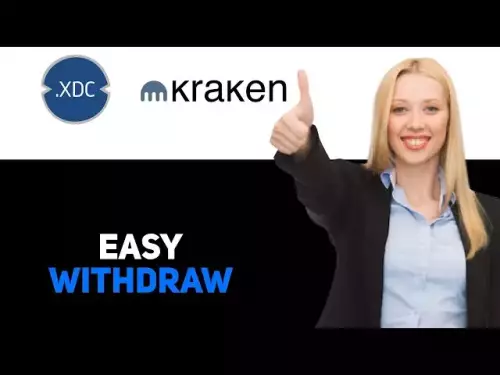 |
|
 |
|
 |
|
 |
|
 |
|
 |
|
 |
|
 |
|
 |
|
 |
|
 |
|
 |
|
 |
|
 |
|
 |
|
加密货币新闻
Heated Debate Erupts Within Bitcoin Community Over Whether Non-Financial Data Should Have a Place on the Blockchain
2025/05/13 01:03

A heated technical and philosophical debate is unfolding within the Bitcoin community over whether non-financial data should have a place on the blockchain.
At the centre of the dispute is a proposal to remove the size limit on a Bitcoin feature known as OP_RETURN, which some fear would open the door to more non-financial uses of the blockchain.
OP_RETURN is an operation code in the Bitcoin scripting language that lets users embed arbitrary data in a transaction without transferring any coins. Currently, an OP_RETURN can consume 80 bytes of the maximum size of a traditional Bitcoin block, which is 1 megabyte (1,048,576 bytes). The proposed change would remove this limit, allowing OP_RETURN data to consume more space in each block.
While the proposal has raised some technical concerns, it later gained broader attention as it became a flashpoint in a larger ideological debate. The most outspoken critics, such as Bitcoin Core developer Peter Todd, invoked questions about Bitcoin’s identity and the degree of power its core developers hold.
Satoshi Nakamoto’s original whitepaper referred to Bitcoin as a peer-to-peer electronic cash system, and many believe any other uses of the blockchain should be actively discouraged. Among those critics’ main concerns is that if the size limit on OP_RETURN is removed, it might lead to more "monkey jpegs" — a reference to NFTs like Yuga Labs’ Bored Apes Yacht Club — being stored on Bitcoin.
They also pointed out several practical concerns about what uncapping OP_RETURN might mean for Bitcoin node operators and the Bitcoin network as a whole. For instance, they fear that it will increase the bandwidth and storage requirements for node operators, making it more expensive to run a full Bitcoin node.
A Bitcoin node is software that connects to the Bitcoin network and helps enforce the rules of the protocol. Node operators are the gatekeepers of consensus and are vital in keeping Bitcoin secure, decentralised, and censorship-resistant. In particular, they defend Bitcoin’s rules as miners can’t change the protocol if nodes reject invalid blocks.
Those against raising the size limit of OP_RETURN also warned that it could increase demand for block space, driving up transaction fees and pricing out smaller financial transactions. However, Todd said during a recent debate that this is unlikely because of the financial incentives involved.
Bitcoin Core and OP_RETURN
Bitcoin Core is the reference implementation of the Bitcoin protocol — the official software used to run a full Bitcoin node. It’s the original and most widely used version of Bitcoin software, maintained by a decentralised group of developers and contributors.
As such, the Bitcoin Core developers ultimately decide what changes will be included in the software and, by extension, which code modifications will be deployed across the network.
Todd explained that using OP_RETURN to store arbitrary data is about four times more expensive than another available mechanism. That mechanism is segregated witness (SegWit), the result of Bitcoin’s last major ideological battle, which took place between 2015 and 2017.
During that dispute, one camp advocated for increasing Bitcoin’s blocksize beyond 1MB, while the Bitcoin Core team and others argued against the change. This ultimately led to several "hard forks" of Bitcoin, namely Bitcoin Cash and Bitcoin Satoshi Vision, which increased the block size.
Hard forks can be thought of as changes that do not maintain backwards compatibility, whereas soft forks are backwards-compatible. While the “big blockers” hard forked, Bitcoin Core implemented SegWit through a soft fork, allowing blocks to be up to 4MB in size.
Bitcoin calculates fees based on the transaction size, with data in the witness portion of a block effectively getting a 75% discount.
“It’s not economically rational to put your monkey jpegs in OP_RETURN data,” Todd said. “This purely comes down to, in certain cases, for technical reasons, certain protocols need their data to be in output space; it can’t be in witness space.”
Unspendable transaction outputs
OP_RETURN is primarily used to store data on the Bitcoin blockchain in a provably unspendable way. Because it’s unspendable, OP_RETURN outputs are not stored in the Unspent Transaction Output (UTXO) database, which helps reduce Bitcoin node resource usage.
Bitcoin uses a UTXO-based model rather than keeping balances like a bank account. Therefore, your “wallet balance” is the value of the inputs minus the outputs. Every transaction consumes one or more UTXOs as inputs and creates new UTXO outputs. As a best practice, OP_RETURN outputs are given a value of 0 BTC.
Todd explained that as things currently stand, protocols requiring more than 80 bytes of arbitrary data in output space are creating unspendable outputs that get added to the UTXO set.
“Over time, this causes issues because your UTX
免责声明:info@kdj.com
所提供的信息并非交易建议。根据本文提供的信息进行的任何投资,kdj.com不承担任何责任。加密货币具有高波动性,强烈建议您深入研究后,谨慎投资!
如您认为本网站上使用的内容侵犯了您的版权,请立即联系我们(info@kdj.com),我们将及时删除。
-

- XRP 价格预测:周末过山车还是反弹?
- 2025-10-11 09:30:28
- XRP 本周末会保持稳定吗?分析价格预测、鲸鱼活动和潜在 ETF 影响。
-

-

- 白银价格调整:应对下跌并确定关键 SEO 关键词
- 2025-10-11 09:03:41
- 白银的涨势面临调整。发现关键支撑位、长期牛市案例以及对战略投资市场趋势的洞察。关键词优化。
-

-

-

-

-

-
























![[4K 60fps] Prisma by novichokk (1 币) [4K 60fps] Prisma by novichokk (1 币)](/uploads/2025/10/14/cryptocurrencies-news/videos/k-fps-prisma-novichokk-coin/68ee49804ba00_image_500_375.webp)






































